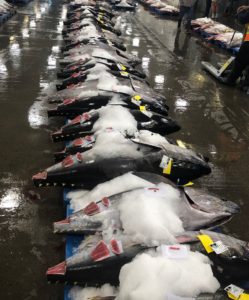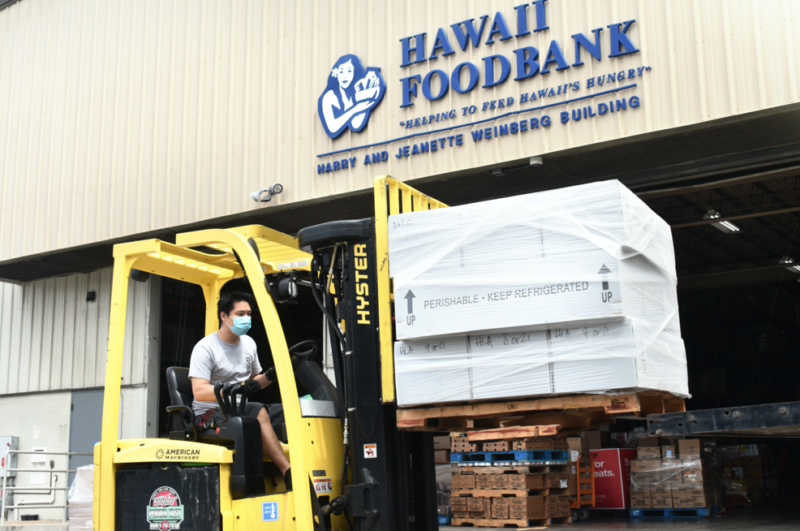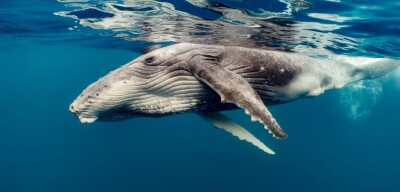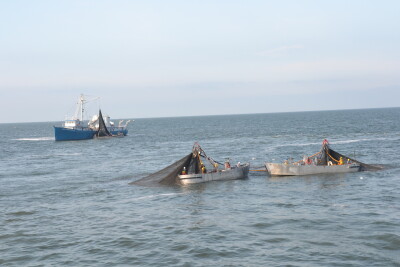The Hawaii Longline Association says it is working with others in Hawaii’s fishing industry to donate 2,000 pounds of fresh seafood to Hawaii Foodbank, and planning larger deliveries – at a time when usual markets have locked up from coronavirus, but Hawaii residents are in increasing need of food assistance.
The initial donation coordinated with the with United Fishing Agency’s Honolulu auction, the Hawaii Seafood Council, Nico’s Pier 38, and Pacific Ocean Producers, “is the beginning of a new pilot program with the Hawaii Foodbank,” the association said this week.
“Through the partnership, Hawaii Foodbank plans to purchase $50,000 worth of seafood landed by Hawaii longline vessels,” according to a statement from the association. “The purchase will ensure that Hawaii Foodbank will be able to meet the needs of Hawaii residents facing hardship as a result of covid-19. It will also support Hawaii’s longline fishermen, who, like many other fisheries across the nation, have suffered devastating losses in revenue within the last four weeks.”

Ahi tuna. Hawaii longliners were hit hard when usual markets for pelagic species froze along with the U.S. restaurant trade. Hawaii Longline Association photo.
Longliners were hit hard when states began ordering restaurant closure to slow the spread of coronavirus. With their usual buyers holding back, Hawaii fishermen had to scramble to find customers who would pay lower prices, and reports reached as far as New York of desperate offers to unload newly landed ahi.
Meanwhile Hawaii’s massive tourism and hospitality industry seized up, with visitors cancelling reservations and local residents demanding Hawaii authorities restrict out-of-state travelers. It’s likely Hawaii’s restrictions – and job losses – will continue beyond earlier hopes for an April 30 reopening.
“We're pleased to partner with Hawaii Foodbank on this important initiative supplying high-quality fresh fish to community members in need during this covid-19 situation,” said Eric Kingma, executive director of the Hawaii Longline Association. “The face of hunger is changing every day and our nearly 140 vessels operating out of Honolulu Harbor are ready and able to make critical contributions to Hawaii’s fragile food supply.”
The Hawaii longline fishery lands around 30 million pounds of fish per year, and generates more than $100 million in landed dock-side value, placing Honolulu Harbor sixth in the nation in terms of fisheries port value according to NMFS statistics.
Fish caught by longline association members, including ahi, marlin, and opah, will be distributed through Hawaii Foodbank’s network of partner agencies through distribution sites across Oahu. United Fishing Agency will break down the fish into filets and package into insulated boxes for distribution.
For more information on the work being done by Hawaii Foodbank to support those in need during the current crisis, visit hawaiifoodbank.org.







